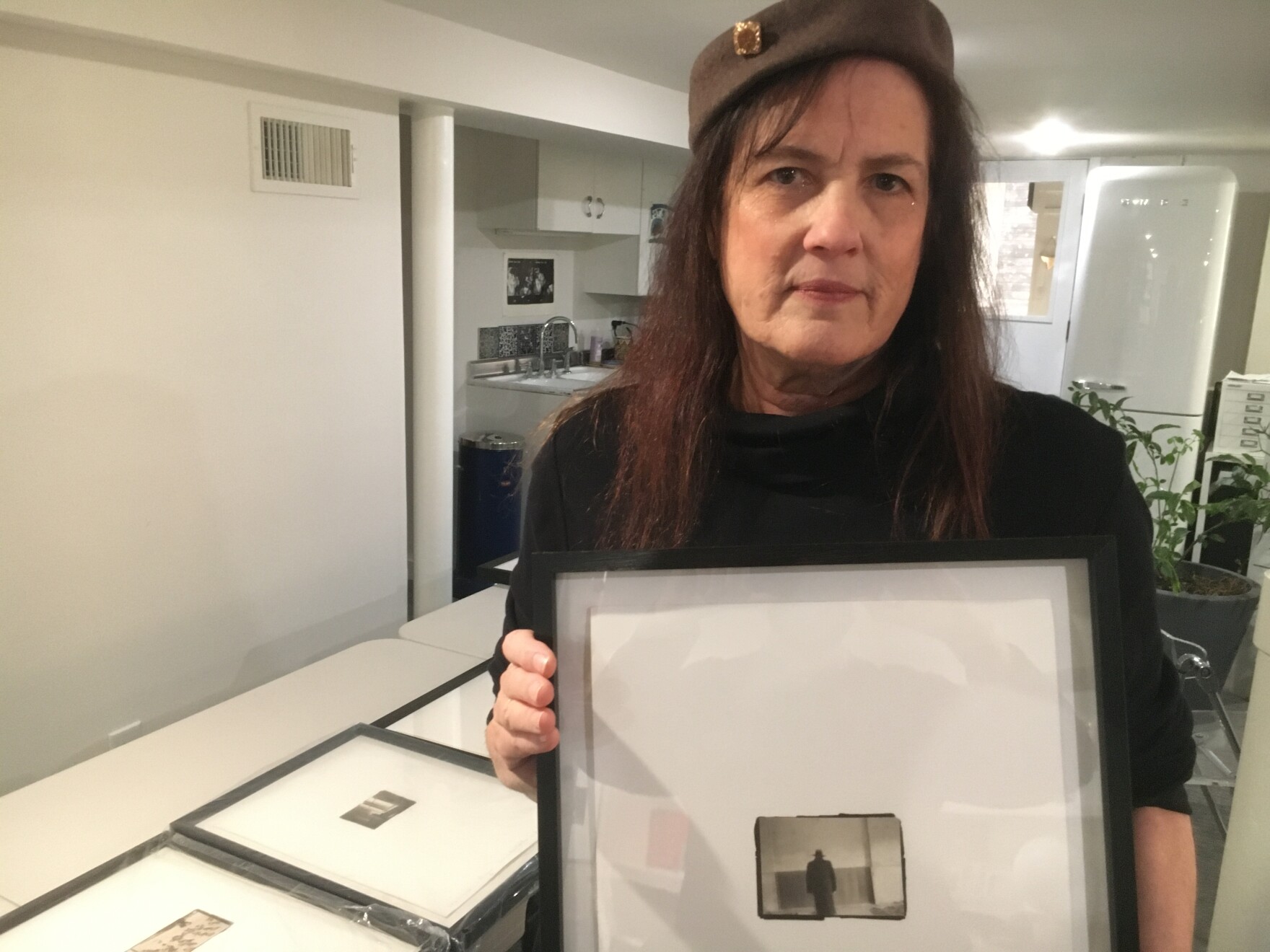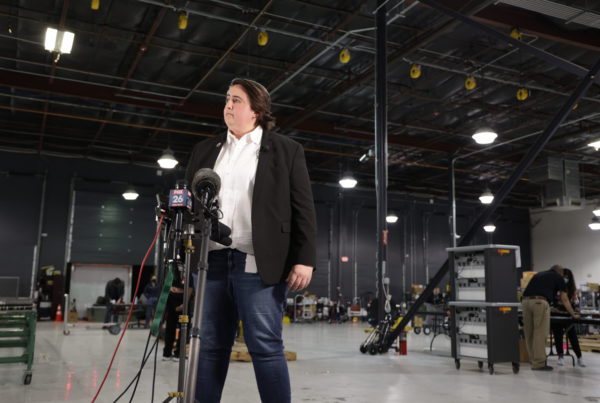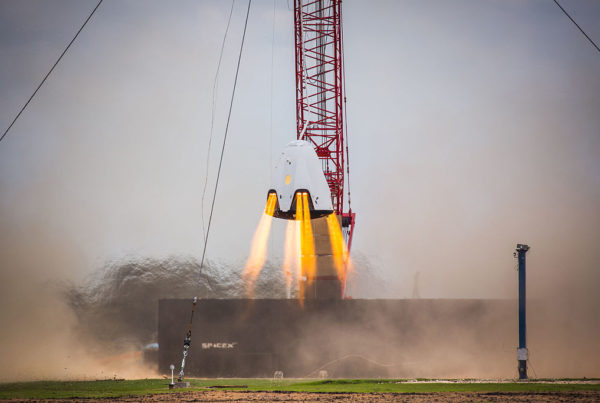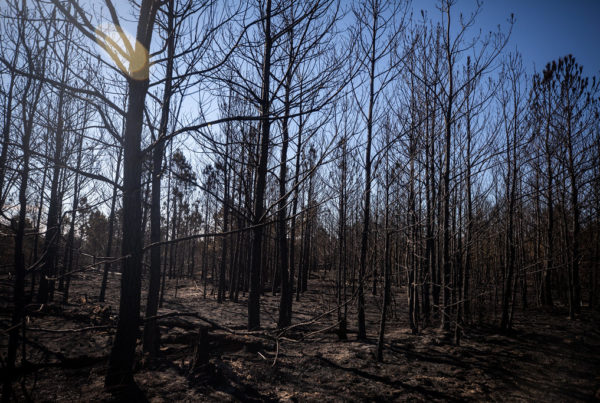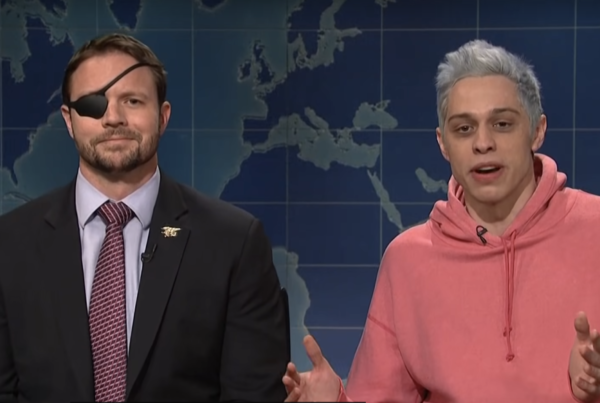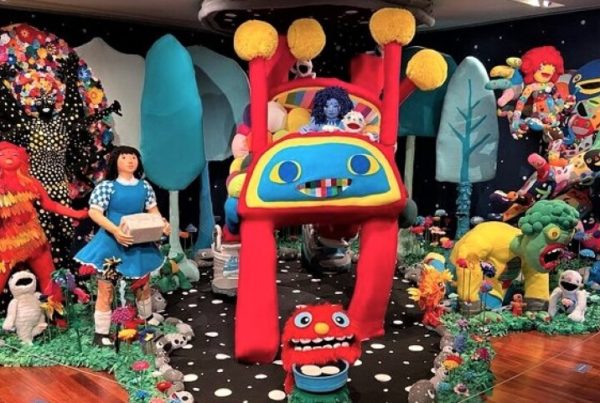Ukrainian educator Alexander — whose last name will be omitted for his protection — talked to Loli Kantor, his friend in Fort Worth, on Zoom the morning after the invasion.
“It’s a nightmare, the war,” said Alexander, who’s currently in Ukraine. “It’s not easy to leave, you know? It’s panic around the country. Many roads are blocked. Traffic jams… Now it’s not possible to travel after 10 p.m. and before 7 a.m.”
Alexander’s two children can be heard in the background. He was in his family’s apartment in Kharkiv, Ukraine’s second-biggest city, roughly 30 miles south of the Russian border. Kharkiv has been under heavy Russian bombardment since the invasion began on Feb. 24.
“Besides this,” Alexander said, “everything is fine! I’m a happy father of two wonderful girls. Yes, we have a good life.”
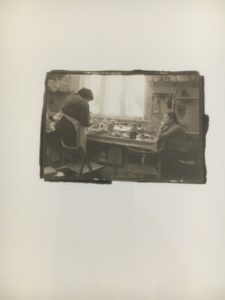
Two women in a Ukrainian kitchen kitchen, photographed by Loli Kantor when she was there more than a decade ago.
Alexander’s irony wasn’t lost on Kantor, a Fort Worth artist who last saw him in Ukraine 11 years ago. Back then, she was preparing photographs she took of small Jewish communities around the country and Alexander was helping with the show.
When Kantor heard the warnings of war, she did not believe it would happen.
Sitting at her dining room table in the 1930s Fort Worth home she shares with her husband, she said she was surprised when Russia invaded.
“Really devastated. Really sad to the core,” Kantor said.
So Kantor contacted her friend in Kharkiv, someone she’d not seen in person in more than decade.
“I’ve never seen him so sad,” Kantor said. “He’s always a very positive and a resourceful sort of person, and I’ve never seen him this way.”
Kantor knows something about war and trauma. The 70-year-old wife and mother is a child of Holocaust survivors. Her mother died when she was born; her father when she was 14. She met Alexander while tracking her own Jewish heritage in Poland. Her travels led to Ukraine, where she visited other Jewish villages and made friends with many. These are people she now worries about.
“What is their future, or what is going to happen? Is it going to be Russia or is it going to be Ukraine? How are they going to feel? What are they going to do?” Kantor wondered.
Family on both sides of the conflict
Another North Texan has been calling Ukraine to hear the voices of loved ones. She was born in Ukraine when it was part of the Union of Soviet Socialist Republics. Because she worries about family members caught in the violence, KERA is identifying her.
“…because part of my family, my cousins, they’re in different parts of Ukraine, and I’m connected to everybody every time and asking in the morning, in the evening, ‘How are you?’ So far everybody is alive. When they hear artillery, they go to the basement,” she said.
The woman has family members on both sides of the conflict — and she’s not alone.
“Many families like mine have relatives on both sides in Russia and in Ukraine,” she said. “And it’s very hard. It’s very hard.”
She said one cousin lives in the important port city of Kherson, which is now under Russian control, according to the latest news reports. She was told there’s still power, water, some groceries, a pharmacy. But her cousin says lines are huge, food and medicine are getting scarce, and citizens have been warned to stay home.
Even though home for her is now in Texas, it’s hard to escape grief — 50 years ago, she was born in Kherson.
Got a tip? Email Reporter Bill Zeeble at bzeeble@kera.org . You can follow him on Twitter @bzeeble.


